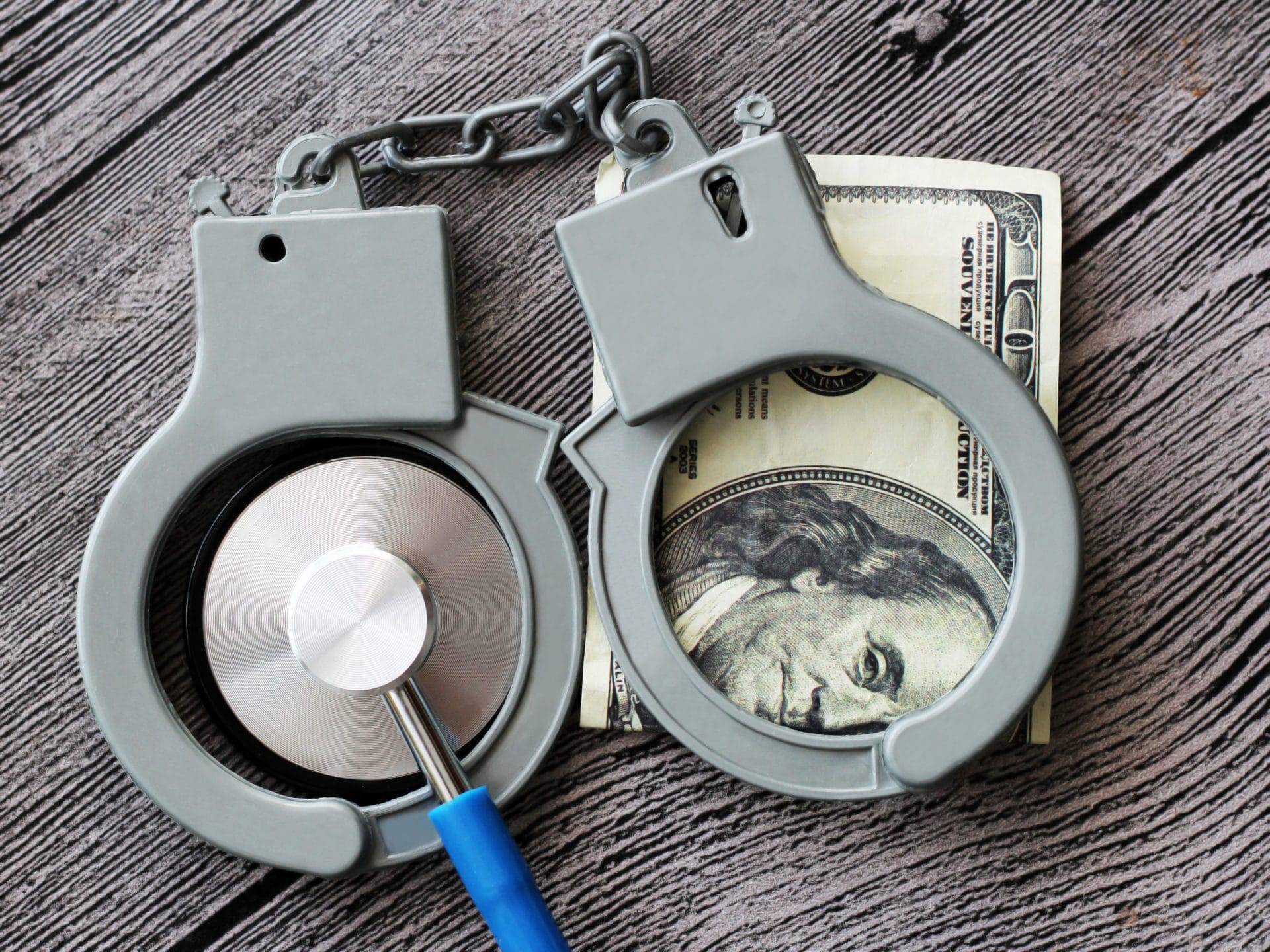Your Guide to Healthcare Fraud in Illinois
Any organization that provides counseling to Chicago youth is generally regarded as one with great ethics — until they take $4 million from the state of Illinois, that is.
This is the unfortunate story of a suburban youth counseling center in Matteson. The organization’s co-owners, along with a top employee at the organization, have recently been indicted on healthcare fraud.
Prosecutors say that the three cohorts filed for reimbursement on counseling services that were not provided, and some claims included non-reimbursable treatment. The trio also allegedly ordered staff members to falsify records to cover up the fraudulent activities.
In total, their allegedly fraudulent claims garnered more than $4 million from the Illinois Medicaid program.
What Is Healthcare Fraud?
The alleged actions that these Chicago counselors made in order to essentially steal $4 million from the Medicaid program all fall under the umbrella of “healthcare fraud,” but this is a pretty broad term.
Healthcare fraud is any action designed to defraud money from the healthcare system with the intention of turning a profit.
So, when an organization is reimbursed for activities that they have already been paid for, in example, or they ask for money to cover treatment or services that have not been rendered or do not otherwise exist, the organization is effectively committing healthcare fraud.
Other specific scenarios of healthcare fraud include:
- Falsifying client records to get money for services not offered
- Offering unnecessary services and billing for them
- Forging bills or receipts in order to get more money
- Unbundling and billing multiple steps of a procedure for larger reimbursement
- Getting reimbursement for prescription drugs that go to the black market (rather than patients)
- Changing bills to make non-covered services fall under what is covered by the healthcare company
It’s Not Just Healthcare Organizations Committing Healthcare Fraud
The Chicago-area counseling center in this story allegedly committed healthcare fraud. However, healthcare fraud is not a crime limited to traditional providers.
Individuals may also commit healthcare fraud by filing a claim for services or expenses that never occurred. Using another person’s healthcare card or account may also result in healthcare fraud charges.
The Consequences of an Illinois Healthcare Fraud Charge
Healthcare fraud is a serious offense in Illinois. The consequences for healthcare fraud vary, but largely depend on the value of the defrauded services or payments.
An individual who defrauded their healthcare provider out of $200 worth of services may only face a Class A misdemeanor charge.
Penalties for that kind of conviction include up to a year in prison and a $2,500 fine. Bump up the value of your fraud crimes over $300, and suddenly you’re facing an Illinois felony charge.
In the case of the suburban youth center, the money was taken from a state government agency, and $4 million isn’t just a couple of bucks.
The indicted individuals in Matteson face up to 50 or 60 years in prison for the 5-6 healthcare fraud charges in the indictment.
No Matter What Your Specific Situation Is, Take Your Illinois Healthcare Fraud Charges Seriously
There are a shocking number of people and organizations committing healthcare fraud in the United States. Experts believe 1/10th of all of the money in the healthcare system pays for fraudulent activity, but the truth is, healthcare fraud isn’t easy to detect.
Case-in-point: the healthcare fraud allegedly committed by the suburban youth counseling center goes all the way back to 2011.
Often, charges are not pressed until many years after the fact.

Many things can happen over that time period and the course of an investigation. Misunderstandings do occur. Old records may look suspicious even when they aren’t.
Whatever your situation, the most important thing is that you take any allegations seriously. An experienced Illinois criminal defense attorney can help you fight healthcare fraud charges and provide you with the best chance to avoid spending decades in prison and owing staggering fines.
About the Author:
Andrew M. Weisberg is a former felony prosecutor who now serves as a defense attorney in the greater Chicago area. He has extensive experience in handling all types of criminal cases, from sex offenses and domestic violence to retail theft-related crimes, murder, and drug crimes.







 Blog Home
Blog Home 










